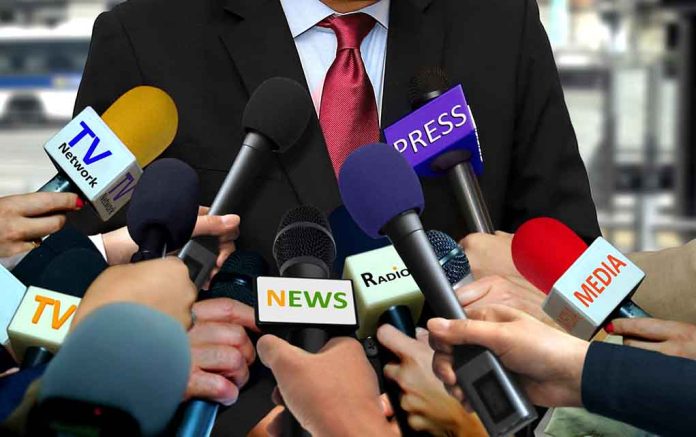
Jeff Bezos’s decision to halt presidential endorsements at The Washington Post sparks controversy, leading to a mass exodus of subscribers and internal turmoil.
At a Glance
- Bezos personally ordered The Washington Post to stop presidential endorsements, causing internal protests and subscriber loss.
- The decision prevented an alleged endorsement of Vice President Kamala Harris, resulting in over 250,000 lost subscribers.
- Bezos defends the move as a principled decision to maintain objectivity and combat perceptions of bias.
- The Washington Post faces financial difficulties, losing $77 million over the past year.
- Structural changes at the newspaper include new leadership and ongoing search for a top newsroom executive.
Bezos Takes Decisive Action to Combat Liberal Bias
In a bold move that has sent shockwaves through the liberal media establishment, Jeff Bezos, owner of The Washington Post, has taken a stand against the newspaper’s left-leaning bias. Bezos personally intervened to prevent the endorsement of Vice President Kamala Harris, a decision that has sparked outrage among the paper’s predominantly liberal staff and readership. This principled stance against political favoritism has cost the Post dearly, with reports indicating a loss of over 250,000 subscribers.
The backlash from this decision reveals the deep-seated liberal bias that has long plagued The Washington Post. It’s clear that many of its readers were more interested in echo chamber journalism than objective reporting. Bezos’s intervention, while financially painful in the short term, may be the shock treatment needed to restore credibility to a newspaper that has increasingly become a mouthpiece for the Democratic Party.
Financial Woes and Restructuring
The Washington Post’s financial troubles run deeper than just the recent subscriber exodus. The newspaper has been hemorrhaging money, losing a staggering $77 million over the past year. This financial crisis underscores the urgent need for reform and a return to balanced journalism that appeals to a broader readership, not just the liberal elite.
In response to these challenges, Bezos has initiated a major restructuring of the newspaper’s leadership. The appointment of Will Lewis as CEO and the resignation of executive editor Sally Buzbee signal a shift towards more balanced reporting. However, the transition has not been smooth, with reports of internal discord and staff dissatisfaction with interim leadership.
The Quest for Journalistic Integrity
Bezos’s decision to end presidential endorsements is a step in the right direction for restoring The Washington Post’s credibility. For too long, mainstream media outlets have abandoned their role as objective news sources in favor of political activism. This shift has eroded public trust and contributed to the polarization of our society.
By prioritizing journalistic neutrality over political endorsements, Bezos is challenging the entrenched liberal bias in mainstream media. This move, while unpopular among the left, is essential for rebuilding trust with conservative readers who have long felt alienated by The Post’s slanted coverage. It’s a reminder that true journalism should inform, not indoctrinate.
A New Era of Accountability
As The Washington Post navigates these turbulent waters, it’s clear that the path forward will not be easy. The internal resistance to change and the financial pressures highlight the deep-rooted issues within the organization. However, Bezos’s commitment to objective reporting and his willingness to make tough decisions in the face of liberal outrage are commendable.
The conservative community should view these developments with cautious optimism. While The Washington Post has a long way to go in regaining trust, the acknowledgment of bias and the steps taken to address it are positive signs. As the search for a permanent newsroom leader continues, we can hope that The Post will prioritize journalistic integrity over political agenda-setting.
In the end, this controversy may serve as a wake-up call not just for The Washington Post, but for the entire mainstream media landscape. It’s time for news organizations to return to their roots of fair and balanced reporting, leaving political endorsements to the editorial pages where they belong. Only then can we begin to heal the divisions in our society and restore faith in the Fourth Estate.






















